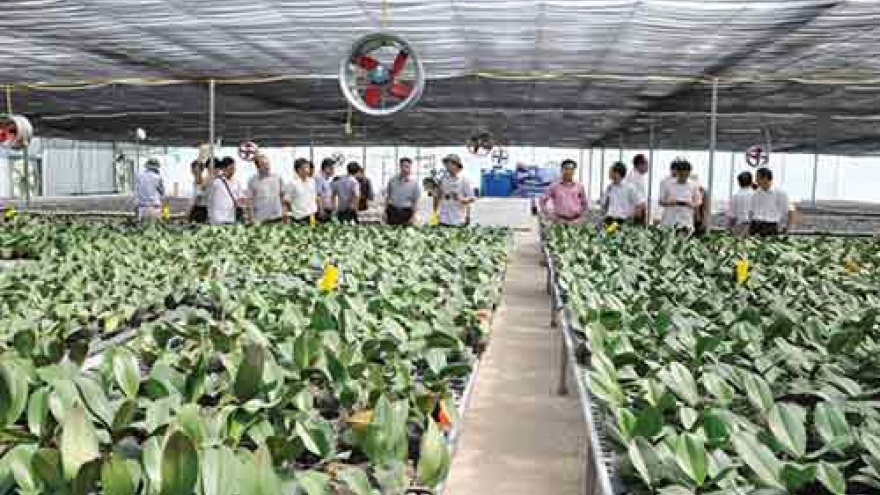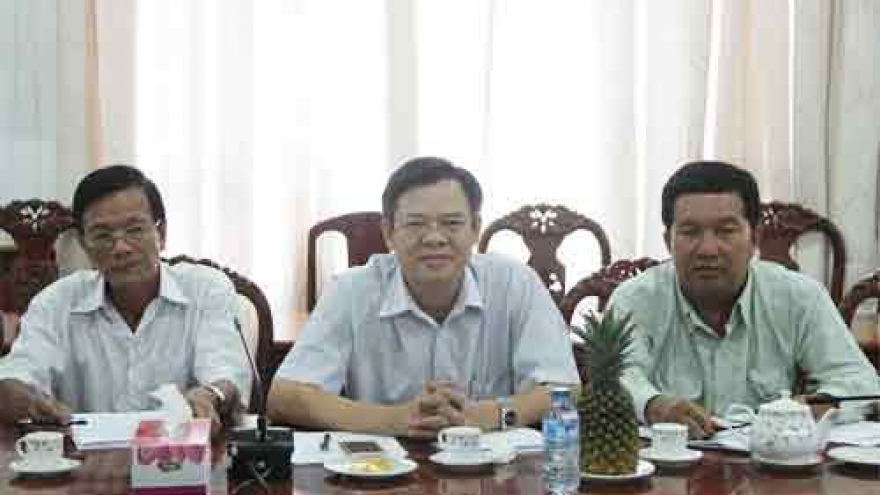EU free trade pact upends Vietnam agriculture
VOV.VN - Agricultural produce in Vietnam will face increasingly stiff competition from the EU as an expansive free trade agreement eliminates import tariffs on substantially all products traded between the two economies over the next five years.
 |
According to the update, Vietnam's average tariff on agricultural products was 16% as of last year. Under the trade pact, which came into effect late last year, Vietnam will reduce and eventually eliminate tariffs across a broad range of food and agricultural products.
This will help put actors in the EU agriculture segment of the economy and their exports on a level playing field in Vietnam with those in the local industry, and give the EU a leg up on other foreign competitors.
Dr Vo Tri Thanh, vice president of Central Institute for Economic Management, recently warned guests at a seminar in Hanoi that the trade accord with the EU could negatively impact the agriculture segment of the nation’s economy.
Even more trouble for agriculture is lurking in the shadows, said Dr Thanh, as the EU is finalizing free trade agreements with Laos, Cambodia and a number of other ASEAN countries.
When these latter agreements come into force they will for all practical purposes put Vietnam agriculture on a level playing field and competitive basis with all other ASEAN member nations.
Even more troublesome for agriculture is the growing prevalence of locally grown unsafe produce in the country that has sparked a consumer demand for foreign products, especially those from regions such as the EU.
This offers huge openings for companies in EU agriculture to do business in Vietnam, said Dr Thanh.
At conferences across the EU, representatives from many agriculturally-linked businesses have said that the free trade deal with Vietnam enables them to expand their sales, thanks principally to reduced import tariffs.
Nguyen Do Anh Tuan, head of the Institute of Policy and Strategy for Agriculture and Rural Development (IPSARD) under the Ministry of Agriculture and Rural Development agrees with Dr Thanh.
The free trade agreement with the EU is already beginning to exact its toll on Vietnam agriculture, said Mr Tuan, and is one of the leading reasons agriculture in Vietnam contracted, experiencing negative growth in the early months of 2016.
It’s vitally important for the players in the local agriculture segment of the economy to get their act together, he said, and in the medium and long term focus on restructuring to achieve food hygiene and safety as the number one priority
Secondarily, they need to achieve a proper balance among quality, price and timeliness of production.
Mr Tuan suggests that the coffee segment be restructured first – followed in rapid succession by the rice, pepper and seafood segments of the industry.
Not only are Vietnamese consumers beginning to turn their backs on local produce over food safety concerns, said Mr Tuan, but EU importers are also starting to sound the alarm and are warning of unacceptable pesticide residue.
All the other problems that agriculture faces, pale in significance to food safety concerns, he said, — and if the industry doesn’t resolve the problem, it will continue to see a mass exodus of consumers compounded by an influx of foreign competitors.
In short, the EU-Vietnam trade pact may just upend Vietnamese agriculture as we know it today, he concluded.



